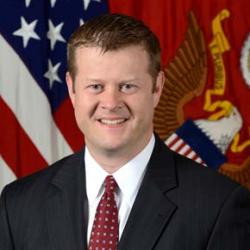2026
When it comes to modernization, speed, agility, and leveraging commercial innovations are essential enablers, but each can prove difficult. Following tens of billions of dollars in U.S. Army spending over the last decade to develop new weaponry, multiple failures have added up, some with little or nothing to show for the costs. In addition to looking to create new and more lethal capabilities to help the warfighter to win and come home safely, the Army has been tasked to do more with less, making the ability to experiment with prototypes all the more critical. Army forces must also possess the capabilities—and be prepared to fight across multiple domains and through contested areas—to deter potential adversaries, and should deterrence fail, rapidly defeat them.
On February 8, the Foreign Policy program at Brookings hosted a discussion on the future of Army modernization and force planning, featuring the Honorable Ryan D. McCarthy, under secretary of the U.S. Army. Brookings Senior Fellow Michael O’Hanlon moderated the conversation, while adding his own perspectives.
Following their conversation, Secretary McCarthy and O’Hanlon took audience questions.
Agenda
-
February 8
-
Moderator
 Michael E. O’Hanlon Director of Research - Foreign Policy, Director - Strobe Talbott Center for Security, Strategy, and Technology, Co-Director - Africa Security Initiative, Senior Fellow - Foreign Policy, Strobe Talbott Center for Security, Strategy, and Technology, Philip H. Knight Chair in Defense and Strategy @MichaelEOHanlon
Michael E. O’Hanlon Director of Research - Foreign Policy, Director - Strobe Talbott Center for Security, Strategy, and Technology, Co-Director - Africa Security Initiative, Senior Fellow - Foreign Policy, Strobe Talbott Center for Security, Strategy, and Technology, Philip H. Knight Chair in Defense and Strategy @MichaelEOHanlon
-


